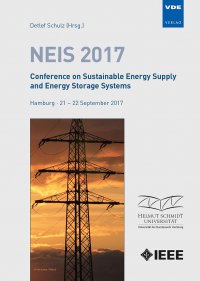Control Challenges in Power Systems Dominated by Converter Interfaced Generation and Transmission Technologies
Conference: NEIS 2017 - Conference on Sustainable Energy Supply and Energy Storage Systems
09/21/2017 - 09/22/2017 at Hamburg, Deutschland
Proceedings: NEIS 2017
Pages: 8Language: englishTyp: PDF
Personal VDE Members are entitled to a 10% discount on this title
Authors:
Erlich, Istvan (Faculty of Engineering, University of Duisburg-Essen, Duisburg, Germany)
Abstract:
This paper surveys the control challenges arising from the increasing level of power injected into the network through converter interfaces. As is well-known, converters link renewable based power generation plants as well as voltage source converter based high voltage DC transmission lines (VSC-HVDC) to the main grid. It is shown that current injection control, as it is implemented in almost all wind turbines (WT) controls at the moment, is not suitable in grids dominated by converter in-feeds such as offshore wind farms. A new WT as well as VSC–HVDC control concept, which determines the converter reference voltage directly without the need for an underlying current controller, has been proposed. Additionally, alternative options for frequency support by the HVDC terminals that can be incorporated into the active power control channel have been presented and discussed. Simulation results show that the control approach fulfils all the operational control functions in steady state and in contingency situations supporting fault ride-through and emergency frequency support, without encountering the problems arising from current injection control. Additionally, the author analyzes consequences of the transition from conventional synchronous generator based generation to converter interfaced generation utilized usually for renewable sources. As a conclusion, the author gives their recommendation for the maximum share of converter-interfaced units in future large scale power systems.


